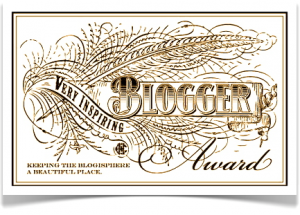
Sunset Over Horizon
Photo by Tracy Shawn
If someone had told me that my anxiety would become one of my biggest strengths during the phase in my life when irrational fear knocked me to my knees, I would have shook my head with frustration. There was no possible way my general anxiety disorder could be of any benefit.
In fact, I lived in guilt about how my constant “what if” thoughts were stealing away the day-to-day joy with my family and how this was affecting them. Moments, days, and years that I knew I’d never be able to get back. And yet, when I was finally able to climb out of it (in a large part, due to the cathartic act of writing my debut novel, The Grace of Crows, about a woman with debilitating anxiety), I understood, that anxiety — with all its pain and regret — did make me stronger, more empathetic, and even more creative. It also made me that much more grateful for ordinary happiness.
As the famous mythologist Joseph Campbell tells us, the greatest weakness that a hero struggles with — and then overcomes — may very likely become that hero’s greatest strength. In fact, many people struggle with disorders that can impede them in both major and minor ways — and yet still manage to mine the underlying gold that their afflictions provide. For instance, studies have shown that people with ADHD often enjoy very successful careers because of their ability to focus for hours at a time and are more likely to push past setbacks in order to attain their final goals. It is theorized that Thomas Edison probably had ADHD — and maybe because of this — was able to maintain his passion in inventing the light bulb, even after 3,000 tries! Although people with ADHD are said to struggle with organization and punctuality, they are also known to be highly creative and intelligent people.
Autism, too, has its upsides. According to an article “The Upside of Autism” (updated March, 31, 2012) in the Wall Street Journal, author Jonah Lehrer says, “…there’s compelling evidence that autism is not merely a list of deficits. Rather, it represents an alternative way of making sense of the world, a cognitive difference that, in many instances, comes with unexpected benefits.” What are these benefits? Lehrer cites a study in which scientists concluded that people with autism are able to process more information in a short amount of time. Although scientists have long assumed that people with this disorder are more likely to be distracted by such things as an errant sound, that’s not the case. Rather, research now shows that autism doesn’t make one more distractible, but provides an information-processing advantage. As Lehrer so eloquently puts it, “What seems, at first glance, like a straightforward liability turns out to be a complex mixture of blessings and burdens.”
Even depression can be said to have a “secret purpose.” In an article titled “Depression’s Upside” published in The New York Times Magazine by the same author, Lehrer dives into the research by psychiatrist Andy Thomson at the University of Virginia and Paul Andrews, an evolutionary psychologist at Virginia Commonwealth University. Depression, Thompson and Andrews theorize, creates an “analytic-rumination process that may help improve problem-solving skills. And, although, depression can cause stagnation, the emotional pain can become an ultimate motivator to push oneself out of a negative situation, such as a bad marriage.
Lehrer also talks about a survey led by neuroscientist Nancy Andreasen, showing how 80 percent of writers from the Iowa Writers’ Workshop met the diagnostic criteria for depression. Andreasen argues that the reason why mental illness is closely linked to creativity is that one of the most important qualities in the creative process is persistence — and that this kind of persistence comes from the relentless focus mental illness can provide.
With this research in mind, the psychological struggles that come from being human — as all of us suffer from emotional pain, whether we have a diagnosable “disorder” or not — should not be stigmatized. Besides seeking cures for the negative effects of whatever conditions we are challenged with, it’s also beneficial to acknowledge their gifts, which may help us lead more meaningful, hopeful, and creative lives.
Author and speaker Tracy Shawn, M.A. lives and writes on the Central Coast of California. Her award-winning debut novel, “The Grace of Crows,” is available on Amazon and other online book outlets. She has recently completed her second novel. Please visit her at: www.tracyshawn.com
